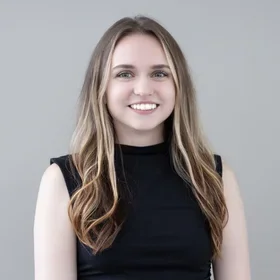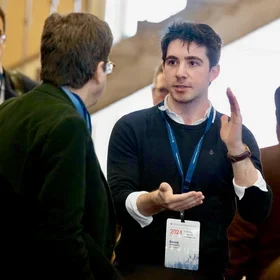Akanksha Rakesh, ’20SPS, Executive Technology Management, just accepted a Senior Program Manager role at Amazon HQ in Seattle. She attributes her success in part to the knowledge and experience gained from the program, which set her apart from other candidates during her interview process and positioned her as an ideal candidate for the role.
Akanksha will be leading the technical program management efforts for the eCommerce Foundation (eCF) team starting January 2021. She recently discussed her experience in the program, the classes that stood out the most, and the specific Executive Seminar takeaways in digital transformation, strategic advocacy, and cybersecurity that helped her land the new position.
What led you to pursue Columbia’s Executive Master’s in Technology Management?
Although I had always wanted to do a master’s program, six months before I started the executive program, I took part in an initiative at Microsoft to shadow a senior leader in my organization. This program was designed to learn about leadership styles through interactions with executives across the company. I found that along with unmatched technical understanding, these successful leaders possessed exceptional strategic foresight, business know-how, and a strong executive presence.
I then decided to pursue a program that gave me an executive-level insight into how business in technology, operations management, law, sales, and marketing, behavioral challenges influence an executive’s decision-making.
Tell us about your career journey. What are you working on at Microsoft? What kind of impact would you like to make in your career?
I come from a middle-class household in India where I was taught to work hard, challenge the status quo, and become fiercely independent. As a result, I completed my undergraduate degree in computer engineering, a first-of-a-kind in my extended family, and started to work as a software engineer at Dell, a software services company. I went on to become a lead at ZS Associates, a healthcare management consulting firm, and then a project manager at Starbucks, here in Seattle. Throughout my career I was never complacent about my failures, I asked myself what I was afraid to do — and that's usually the thing I did.
At Microsoft, I led the strategy and budget of the storage platform for OneDrive and SharePoint Online and drove architectural improvements to provide a reliable large-scale platform that meets future needs of our customers.
I definitely want to define my career by the impact I have, rather than the position I hold. But really, I want to build products that make a difference, work for a company with a mission I believe in, and apply what I learn to coach and empower other professionals, in particular, women technologists, to rise to the upper echelons of management.
Which courses, events, or faculty members stood out in helping you to hone key skills?
Strategic Advocacy with Professor Lyle York helped me focus on cultivating alliances and competencies necessary for initiating strategically-focused technology-related business conversations. This class helped me start a new project at Microsoft, and I also applied many of these concepts in my interview with Amazon. I was also able to make an immediate impact at work thanks to Norman Jacknis’s artificial intelligence class, which taught us to apply analytical thinking to my technical ideas.
The mentor-led projects that underpin the program attracted me the most when I was applying. I firmly believe that a good mentor can fundamentally change the course of your life. I was amazed how Dr. Langer meticulously matched each student with their mentors. My project idea was in the travel space and my mentor, Garrert Vargas, is a senior executive at one of the largest online travel companies. He continuously pushed me to look at the big picture and think beyond the program, even offering to introduce me to area experts who could help me bring my idea to life. This course starts from the grassroots level and teaches you how to conceive an idea, do the necessary market and financial research, and learn to think like an entrepreneur. The biggest learnings came from my presentation in front of an esteemed C-level executive panel. You have to know exactly what you are talking about, and you must communicate succinctly. That is the holistic, comprehensive experience that only this program can give you.
This is the only offering of its kind to provide students with an opportunity to engage in practical projects and learn about technical and business challenges under the guidance of the industry stalwarts. A new version of me is striving to achieve bigger goals, and has the confidence to achieve them, all thanks to the tools that the executive program equipped me with.
What advice do you have for future students who want to succeed in leadership roles in the tech industry?
My cohort is a group of the most talented and knowledgeable people around the world. Especially during COVID, we’ve grown to depend on each other, support each other, facilitate group conversations and meet outside the regular team-focused coursework. I would advise future students to form a similar bond.
Having worked on pioneering digital products that have made the organizations leaders in their respective industries, I have become a firsthand witness of how a technology mindset forms a foundation of any successful business model. I would advise future students to focus on developing both technological and business skills in tandem.
A combination of a strong sense of ownership, bias for action, bold vision for the future, empathy towards your team and your customers, and last but not least, responsibility towards social, ethical, and environmental impacts of technology will set you apart as a leader, especially in today’s world.
Learn more about the Executive Master of Science in Technology Management.


